Zdobądź drugiego pilota

Utwórz chatbota dla lekarza opieki paliatywnej
Transform palliative care with Copilot.Live advanced Chatbot for physicians. Streamline workflows, personalize patient care, and access comprehensive support 24/7. Join the future of compassionate healthcare today.
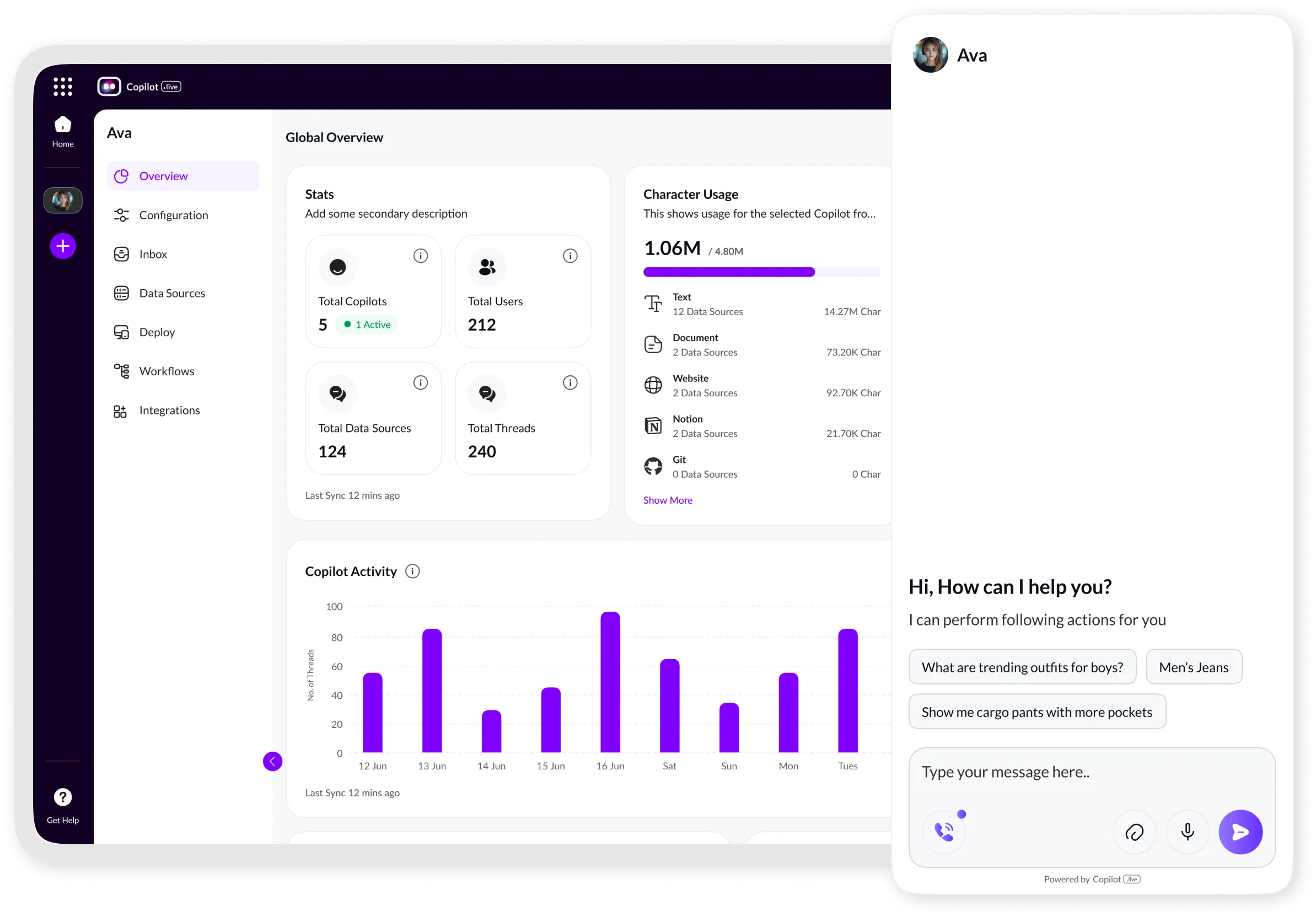
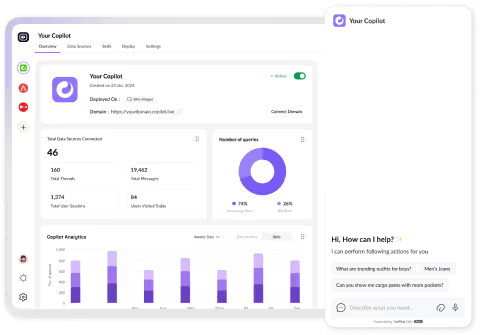
Utwórz chatbota dla lekarza opieki paliatywnej
Transform palliative care with Copilot.Live advanced Chatbot for physicians. Streamline workflows, personalize patient care, and access comprehensive support 24/7. Join the future of compassionate healthcare today.


Build an AI assistant in 3 minutes
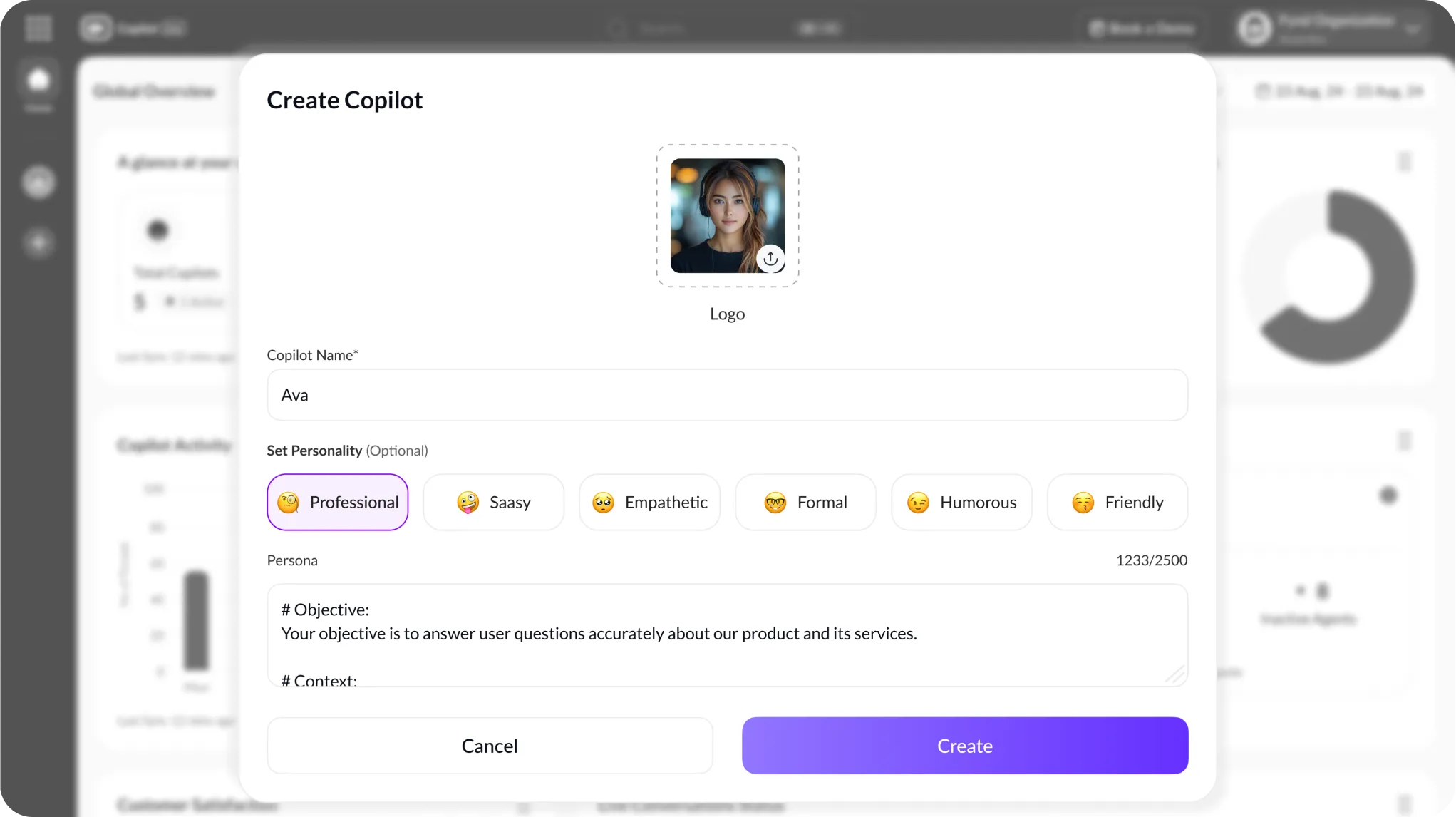
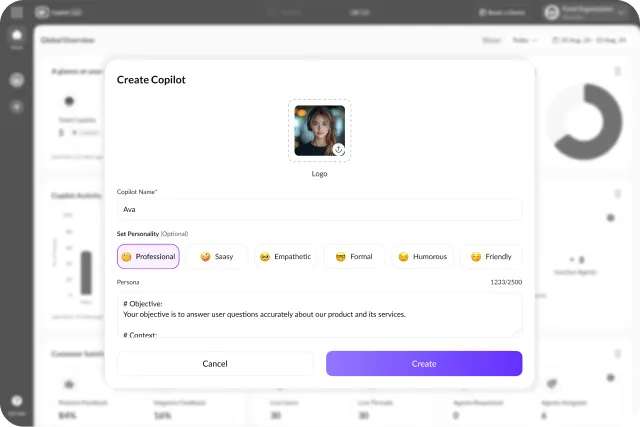
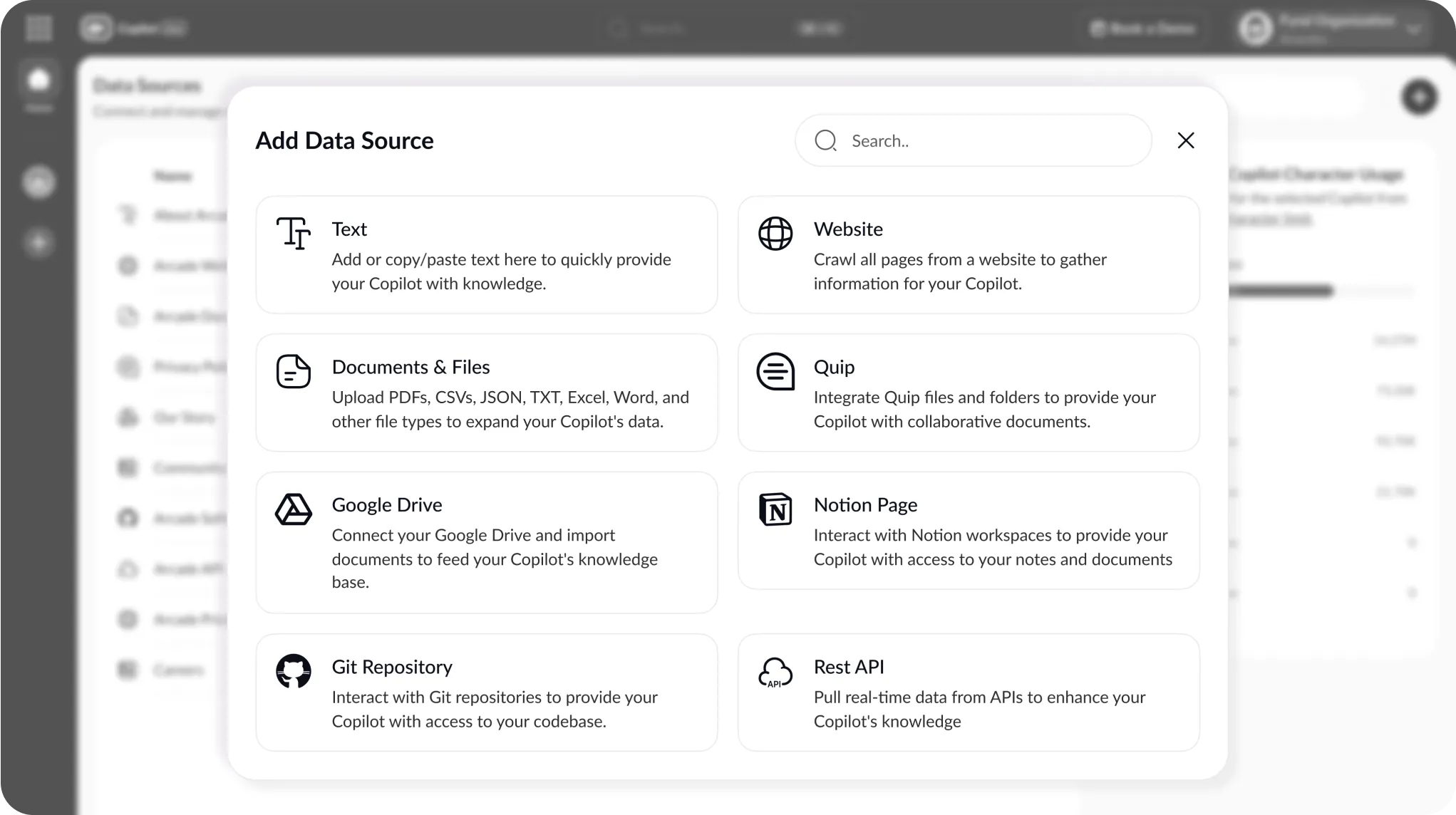
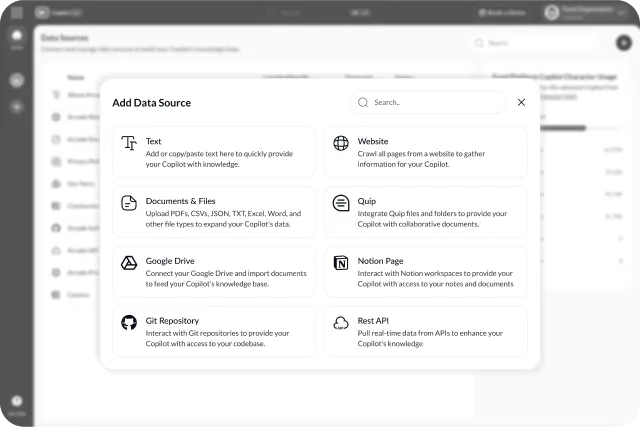
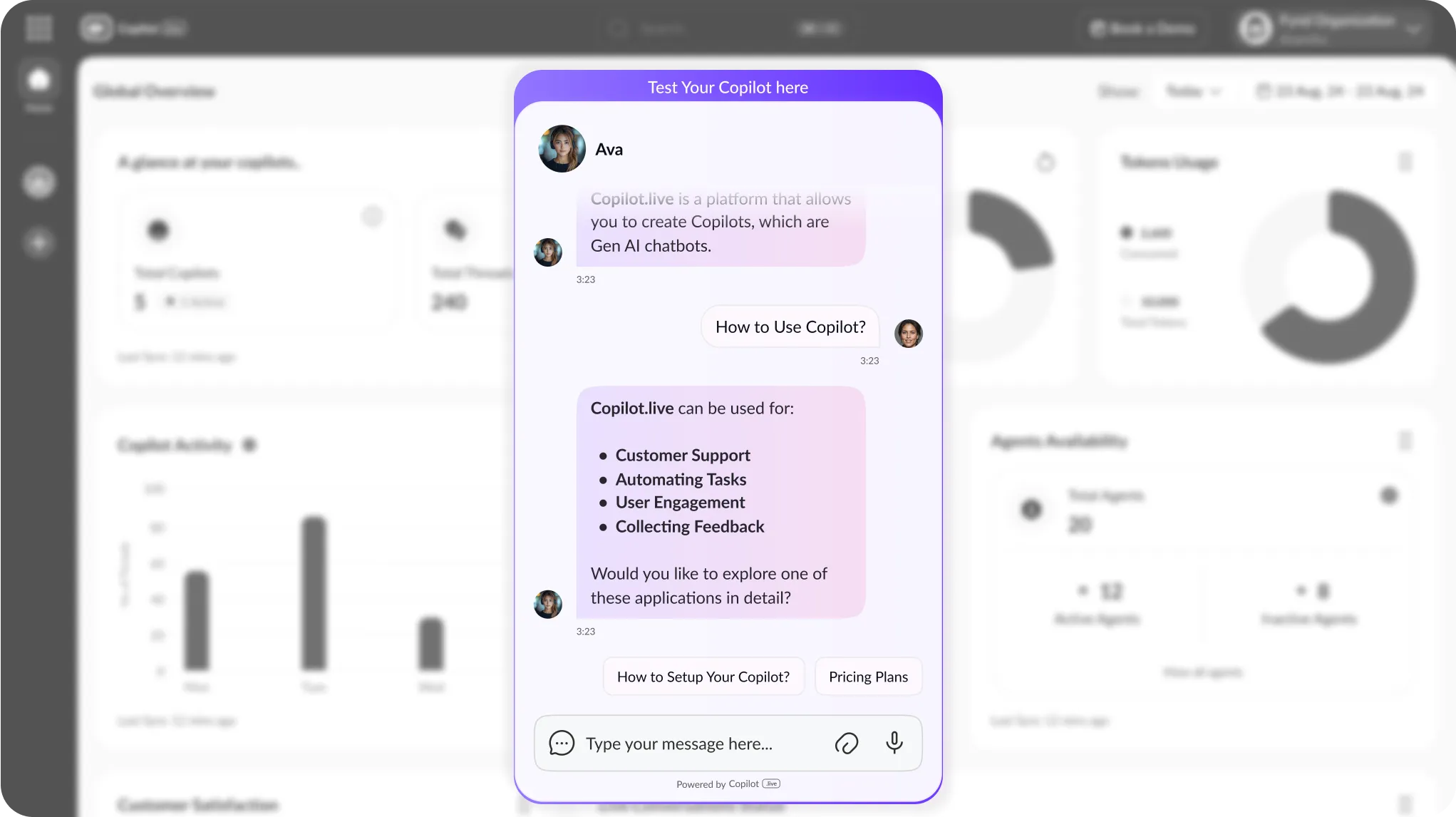
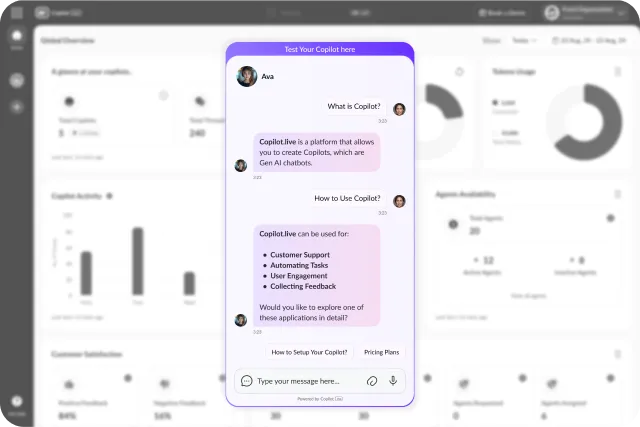
Creating Your Chatbot For Palliative Care Physician With Copilot.Live
Konsultacja
Discuss your needs and preferences with our team to tailor the Chatbot's functionalities for your palliative care practice.
Rozwój
Our experts design and build the Chatbot, integrating it seamlessly into your existing systems for smooth operation.
Testowanie
Thoroughly test the Chatbot's responses and functionality to ensure accuracy and reliability in real-world scenarios.
Zastosowanie
Deploy the Chatbot across your practice, providing ongoing support and updates to optimize its performance and adaptability.

Empower Your Palliative Care Practice With Copilot.Live
In today's healthcare landscape, efficiency and precision are paramount in providing exceptional palliative care. Copilot.Live introduces a groundbreaking Chatbot explicitly designed for palliative care physicians, offering a streamlined solution to enhance clinical workflows and patient interactions. Our Chatbot leverages advanced natural language processing (NLP) to provide instant access to crucial clinical guidelines, medication details, and patient histories. At Copilot.Live, we understand the complexities involved in delivering compassionate end-of-life care.
Our Chatbot is a reliable assistant, ensuring you have the correct information at your fingertips precisely when needed. Whether you manage symptom assessments, treatment plans, or patient consultations, our technology supports you accurately and efficiently. Join us in transforming your practice with Copilot.Live innovative AI-powered solutions are tailored to meet the unique demands of palliative care. Discover a more innovative way to integrate technology seamlessly into your daily routines and elevate the standard of care for your patients.
Why Choose Copilot.Live For Your Palliative Care Physician Chatbot Needs?
Customizable Alerts And Reminders
Set personalized alerts for medication schedules, patient assessments, and follow-ups. Ensure timely care interventions with automated reminders tailored to your practice's needs, enhancing patient adherence and overall treatment outcomes.
Interactive Decision Support
Access comprehensive decision support tools that analyze patient data and symptoms to provide evidence-based recommendations. Enhance clinical decision-making with real-time insights, ensuring you deliver optimal care plans aligned with current best practices in palliative medicine.
Panel analizy danych
Utilize a robust analytics dashboard to track patient trends, outcomes, and performance metrics. Visualize data insights to identify patterns, optimize treatment strategies, and improve operational efficiencies. Gain actionable intelligence that supports continuous quality improvement and enhances the effectiveness of your palliative care interventions.
Secure Information Exchange
Facilitate secure information exchange within your healthcare team. Ensure confidentiality and compliance with HIPAA regulations while sharing critical patient information seamlessly. Streamline communication and collaboration among clinicians, fostering coordinated care delivery and improving patient safety and satisfaction.
Optimize Palliative Care With Copilot.Live
In the realm of palliative care, precision and efficiency are pivotal. Copilot.Live introduces a revolutionary Chatbot crafted exclusively for palliative care physicians, offering a streamlined solution to enhance clinical workflows and patient interactions. Our AI-powered Chatbot leverages advanced natural language processing (NLP) to provide instant access to critical clinical guidelines, medication details, and patient histories, all within a secure and compliant environment.
At Copilot.Live, we recognize the intricacies involved in providing compassionate end-of-life care. Our Chatbot is a dependable assistant, ensuring you have accurate information precisely when needed. Whether managing symptom assessments, treatment plans, or patient consultations, our technology supports you efficiently. Embrace a smarter approach to integrating technology into your daily routines and elevating the standard of palliative care. Discover how Copilot.Live can empower your practice with tailored, insightful solutions that enhance decision-making and optimize patient outcomes.
Key Features & Benefits Of Copilot.Live Chatbot For Palliative Care Physician
Welcome to Copilot.Live, where advanced AI solutions are tailored specifically for palliative care physicians. Streamline your workflows, access essential resources instantly, and enhance patient care with our innovative Chatbot. Experience a new era of efficiency and precision in end-of-life care management.
Documentation Assistance
Simplify documentation tasks with templates and prompts tailored to palliative care needs. Ensure comprehensive and accurate patient records while reducing administrative burden, allowing more time for direct patient care and improving overall practice efficiency.
Zasoby edukacyjne dla pacjentów
Access a library of educational materials on palliative care topics for patients and caregivers. Provide reliable information on symptom management, treatment options, and supportive care strategies, empowering patients to make informed decisions and enhancing their overall experience and satisfaction.
Clinical Pathway Integration
Seamlessly integrate predefined clinical pathways into your workflow for consistent, standardized care delivery. Optimize treatment protocols based on best practices and guidelines, ensuring continuity of care and improving outcomes through systematic and evidence-based approaches.
Alerty zdalnego monitorowania
Set up alerts for remote monitoring of patient vitals and symptoms. Receive notifications for critical changes in patient condition, allowing for timely interventions and proactive management, even outside of traditional healthcare settings. Enhance patient safety and peace of mind with continuous, remote monitoring capabilities.
Launch Your AI-Powered Chatbot For Palliative Care Physician In No Time
Automatic Appointment Reminders
Automatic appointment reminders streamline patient care by sending timely notifications to individuals scheduled for palliative care consultations or treatments. These reminders are programmed to alert patients via preferred communication channels such as SMS or email, ensuring they are informed well in advance. By reducing no-show rates and facilitating better patient attendance, healthcare providers can optimize their scheduling efficiency and improve patient satisfaction. Additionally, these reminders support continuity of care, helping patients and caregivers prepare adequately for appointments and enhancing communication between healthcare teams and those under their care in palliative settings.
Narzędzie do sprawdzania interakcji leków
A Medication Interaction Checker is a tool integrated into healthcare systems, including Chatbots for palliative care, that assesses potential interactions between different medications. It analyzes patient-specific drug regimens to identify possible conflicts, such as adverse reactions or diminished efficacy, based on known pharmacological data. This feature enhances patient safety by alerting healthcare providers to potential risks before administering treatments. It ensures informed decision-making in palliative care settings, where patients often receive multiple medications to manage symptoms and improve quality of life. By mitigating risks associated with drug interactions, this tool supports personalized care and improves treatment outcomes for patients in palliative care.
Patient History Summaries
Patient History Summaries provide palliative care physicians with concise, comprehensive overviews of a patient's medical background. These summaries typically include previous diagnoses, current medications, allergies, and relevant clinical notes. By consolidating this information into a single, accessible format, physicians can quickly grasp the patient's health status, previous treatments, and ongoing management strategies. This aids in making informed decisions about palliative care plans, ensuring continuity and coherence in patient care. Patient History Summaries are essential for facilitating efficient consultations, enhancing communication among healthcare teams, and improving the quality of care for patients facing serious illnesses.
Personalized Care Plans
Personalized Care Plans in palliative care are tailored strategies designed to meet individual patients' unique needs and preferences. They integrate patient-specific information such as medical history, symptom severity, treatment goals, and psychosocial factors to create holistic care approaches. These plans outline detailed interventions and goals that align with the patient's values and wishes, promoting comfort, dignity, and quality of life. By focusing on personalized approaches, healthcare providers can address complex symptoms effectively, manage treatment expectations, and support patients and their families throughout their palliative care journey. Personalized Care Plans empower patients by involving them in decision-making processes and ensuring that care strategies resonate with their circumstances and preferences.
Symptom Management Guidance
Symptom Management Guidance provides palliative care physicians expert advice and protocols for effectively managing symptoms in patients with serious illnesses. This feature encompasses evidence-based strategies for alleviating pain, controlling discomfort, and addressing other distressing symptoms such as nausea, fatigue, and dyspnea. It offers tailored recommendations based on the patient's symptoms, medical history, and treatment preferences. By leveraging comprehensive symptom management guidelines, healthcare providers can optimize treatment plans, enhance patient comfort, and improve overall quality of life. This guidance plays a crucial role in palliative care by empowering clinicians to deliver personalized care that effectively addresses each patient's unique symptom experiences and needs.
End-Of-Life Planning Tools
End-of-life planning Tools in palliative care assist patients and families in making informed decisions about their care preferences and goals as they approach the end of life. These tools typically include resources such as advance care planning documents, living wills, and healthcare proxy forms. They facilitate discussions on treatment options, resuscitation preferences, and palliative care wishes, ensuring patients' values and preferences guide their care. End-of-life planning Tools promote autonomy, dignity, and peace of mind by empowering individuals to document their wishes and communicate them effectively to healthcare providers and loved ones. This proactive approach helps alleviate uncertainty and facilitates compassionate end-of-life care that respects patients' preferences and honours their journey.
Caregiver Support Resources
Caregiver Support Resources in palliative care provide essential assistance and information to individuals caring for patients with serious illnesses. These resources aim to alleviate caregiver' burden and enhance their ability to provide adequate care and emotional support. They may include educational materials on symptom management, respite care options, counseling services, and practical tips for coping with caregiver stress. By equipping caregivers with knowledge and support, these resources promote better caregiver well-being, improve the quality of care provided to patients, and foster a supportive environment for caregivers and patients during challenging times in palliative care.
Zaawansowane możliwości wyszukiwania
Advanced Search Capabilities in palliative care Chatbots enable healthcare providers to retrieve specific information from vast databases and patient records efficiently. These capabilities allow users to filter and locate relevant data such as clinical guidelines, treatment protocols, and patient histories based on criteria like diagnosis, medications, or specific symptoms. By facilitating quick access to pertinent information, advanced search features enhance decision-making, streamline workflows, and support evidence-based practices in palliative care. This tool is crucial for healthcare professionals seeking to retrieve precise information promptly, ultimately improving the efficiency and effectiveness of patient care delivery in palliative settings.
Mobile Compatibility
Mobile Compatibility ensures that palliative care Chatbots and related tools can be accessed and utilized seamlessly on mobile devices such as smartphones and tablets. This feature allows healthcare providers to manage patient information, access clinical resources, and communicate effectively with colleagues and patients from anywhere, at any time. Mobile Compatibility enhances flexibility and convenience in palliative care, supporting on-the-go decision-making and facilitating timely interventions. It enables healthcare teams to stay connected and responsive, improving continuity of care and patient outcomes by ensuring that critical information is readily accessible whenever and wherever it's needed in palliative care settings.
Bezpieczne szyfrowanie danych
Secure Data Encryption in palliative care Chatbots involves using advanced cryptographic techniques to safeguard patient information from unauthorized access or breaches. It ensures that sensitive data such as medical records, treatment plans, and personal details are encoded before transmission and storage, protecting confidentiality and privacy. Secure Data Encryption adheres to stringent healthcare regulations like HIPAA, mitigating risks associated with data breaches and fostering trust among patients and healthcare providers. By implementing robust encryption protocols, palliative care Chatbots uphold the highest data security standards, maintaining the integrity and confidentiality of patient information throughout its lifecycle.
Kompleksowe raportowanie
Comprehensive Reporting in palliative care Chatbots involves generating detailed summaries and analyses of various aspects of patient care and operational efficiency. These reports compile data on patient outcomes, treatment effectiveness, resource utilization, and adherence to clinical protocols. They provide healthcare providers with valuable insights into trends, challenges, and areas for improvement in palliative care delivery. Comprehensive Reporting supports evidence-based decision-making, facilitates quality assessment and improvement initiatives, and enhances transparency in healthcare operations. By offering clear, actionable data summaries, these reports enable healthcare teams to optimize workflows, allocate resources effectively, and ultimately enhance the quality of care provided to patients in palliative settings.
Clinical Trial Information
Clinical Trial Information in palliative care Chatbots includes up-to-date details on ongoing research studies and trials relevant to symptom management, treatment innovations, and supportive care interventions for patients with serious illnesses. This feature provides healthcare providers access to comprehensive information such as trial objectives, eligibility criteria, and contact details for enrollment. It empowers clinicians to stay informed about emerging therapies and potential treatment options, facilitating informed discussions with patients and families about participation in clinical trials. By integrating Clinical Trial Information, palliative care Chatbots support evidence-based practices, promote patient access to innovative treatments and contribute to advancing knowledge and care in palliative medicine.
Quality of Life Assessments
Quality of Life Assessments in palliative care Chatbots involve systematic evaluations of various dimensions affecting a patient's well-being and overall quality of life. These assessments typically include physical functioning, symptom severity, emotional well-being, social support, and spiritual concerns. By administering standardized questionnaires or scales, healthcare providers can gather quantitative and qualitative data to understand patients' perspectives and prioritize interventions accordingly. Quality of Life Assessments enable personalized care planning, facilitate discussions on treatment goals, and monitor changes in patient outcomes over time. They support patient-centered care by ensuring that interventions align with patients' values and preferences, ultimately enhancing their quality of life in palliative care settings.
Cultural Sensitivity Settings
Cultural Sensitivity Settings in Palliative Care Chatbots allow healthcare providers to customize care plans and communication approaches based on patients' and their families' cultural backgrounds, beliefs, and preferences. These settings ensure that care delivery respects and acknowledges cultural diversity, promoting trust and improving patient satisfaction. By incorporating cultural sensitivity into decision-making and care practices, Chatbots facilitate more meaningful and effective interactions, address potential barriers to care, and enhance the overall patient experience in palliative settings. This feature supports healthcare providers in delivering culturally competent care that aligns with the values and needs of diverse patient populations, ultimately improving outcomes and fostering inclusive healthcare environments.
Integrated Decision Support Tools
Integrated Decision Support Tools in palliative care Chatbots provide healthcare providers with real-time guidance and recommendations based on clinical guidelines, best practices, and patient-specific data. These tools analyze patient symptoms, medical histories, and treatment options to assist clinicians in making informed decisions about symptom management, treatment planning, and end-of-life care. By integrating decision support capabilities, Chatbots enhance clinical reasoning, promote evidence-based practices, and streamline decision-making processes in palliative care. They empower healthcare teams to deliver personalized, high-quality care that aligns with patient preferences and improves overall outcomes in complex healthcare scenarios.

Transform Your Palliative Care Practice With Copilot.Live
In the evolving landscape of palliative care, Copilot.Live stands at the forefront with its specialized Chatbot designed to revolutionize how physicians manage end-of-life care. Our innovative AI technology offers unparalleled efficiency and precision, empowering healthcare professionals to streamline workflows and optimize patient outcomes. At Copilot.Live, we prioritize accuracy and accessibility. Our Chatbot provides instant access to critical information such as clinical guidelines, medication details, and patient histories, all within a secure digital environment.
This tool is a time-saver and a decision-support system that enhances clinical judgment and patient care planning. Embrace the future of palliative care with Copilot.Live cutting-edge solutions are tailored to meet the unique needs of healthcare providers. Whether navigating complex treatment protocols or ensuring compassionate patient support, our Chatbot supports your practice at every step. Join us in redefining compassionate healthcare delivery and advancing the standards of end-of-life care.
What Does A Chatbot For Palliative Care Physician Need To Know?
A Chatbot designed for palliative care physicians needs a nuanced understanding of various critical aspects to support healthcare professionals in this specialized field effectively. Firstly, it should be equipped with comprehensive knowledge of palliative care protocols, including symptom management, pain relief strategies, and end-of-life care planning. Understanding the intricacies of different diseases and their palliative treatment options is crucial for providing accurate information and recommendations.
Moreover, the Chatbot should be adept at recognizing and responding to patients' and their families' emotional and psychological needs. This includes sensitivity to grief, anxiety, and decision-making challenges that often accompany palliative care situations. It should be capable of providing empathetic support while facilitating informed discussions about treatment options and goals of care.
Additionally, having access to up-to-date clinical guidelines, medication interactions, and patient history is essential for the Chatbot to assist physicians in making well-informed decisions. Integrating electronic health records (EHRs) and other healthcare systems ensures seamless communication and data sharing, further enhancing its utility in clinical settings. A Chatbot for palliative care physicians must combine medical knowledge with compassionate communication skills to support clinicians and patients effectively through challenging healthcare journeys.

Często Zadawane Pytania
W przypadku jakichkolwiek pytań, opinii lub sugestii możesz się z nami skontaktować, pisząc na [email protected] lub czytając poniżej.
A. A palliative care physician Chatbot is an AI-powered tool designed to assist healthcare professionals in managing and delivering palliative care to patients with serious illnesses.
A. It can provide instant access to clinical guidelines, medication information, and patient histories, aiding in decision-making and enhancing efficiency in care delivery.
A. While primarily informational, Chatbots in palliative care can offer guidance on addressing emotional needs and facilitate discussions on treatment preferences.
A. The information is sourced from reputable medical databases and updated regularly to ensure accuracy and reliability.
A. No, it complements human care by providing information and support, but human empathy and judgment remain crucial in palliative care.
A. Patient data is encrypted and stored securely, adhering to strict healthcare privacy regulations like HIPAA to protect confidentiality.
A. Yes, it can provide information on advance directives and hospice care options and help patients and families navigate difficult decisions.
A. Hospitals, hospices, home care agencies, and palliative care clinics can all benefit from integrating a Chatbot to improve care efficiency and quality.
A. They can be customized to fit specific practice needs, integrating with existing workflows and adapting to varying patient populations.
A. Providers can typically request a demo or consultation to explore how a Chatbot can integrate into their practice, improving patient care and operational efficiency









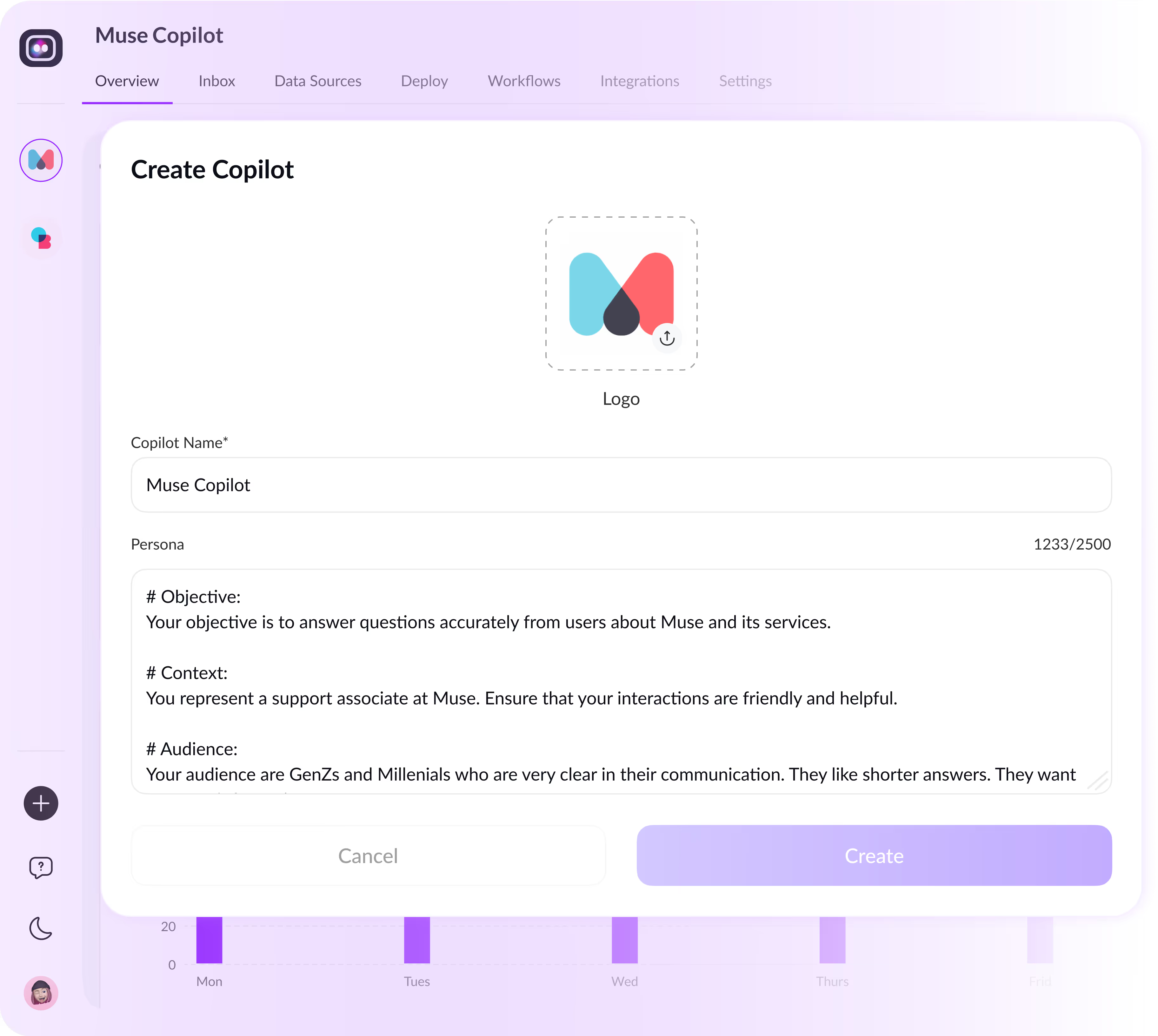
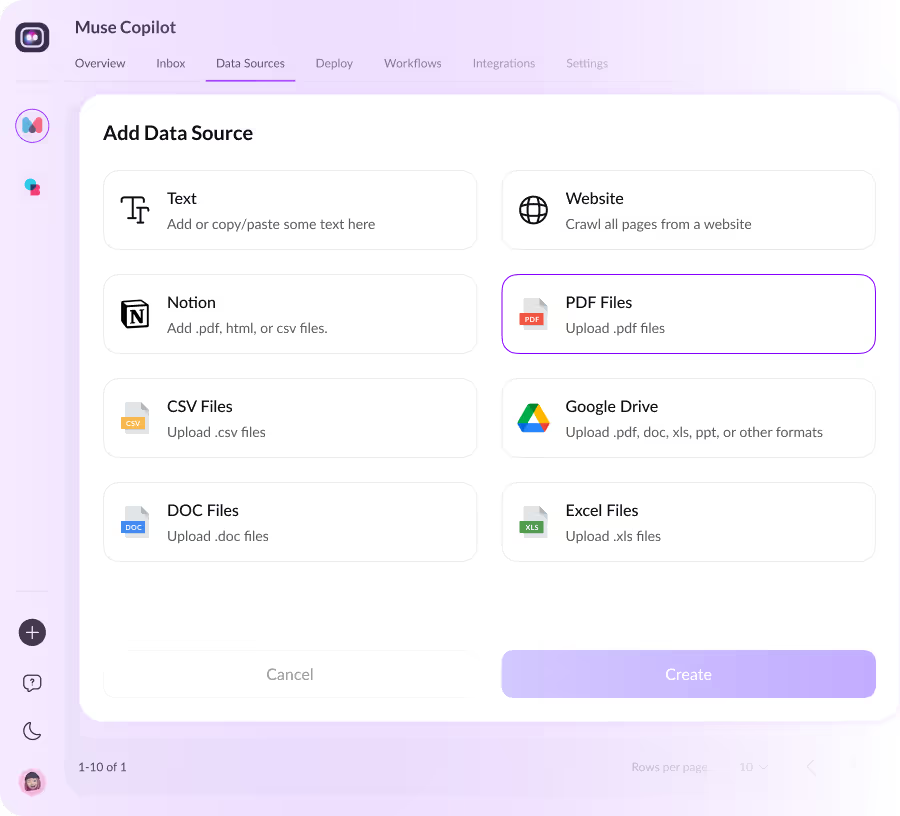
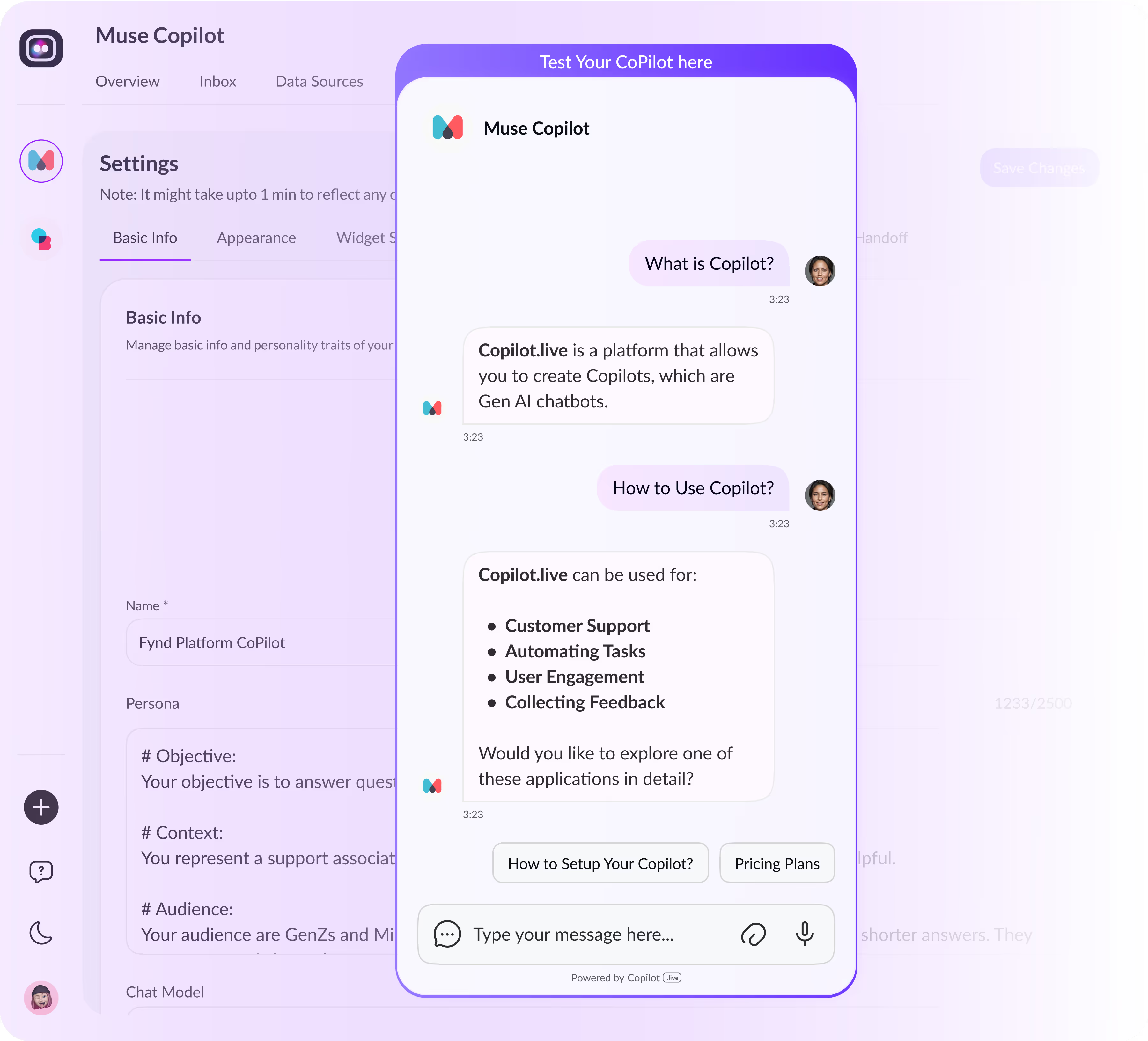






.avif)



.avif)
.avif)

.avif)
.avif)
.avif)











































